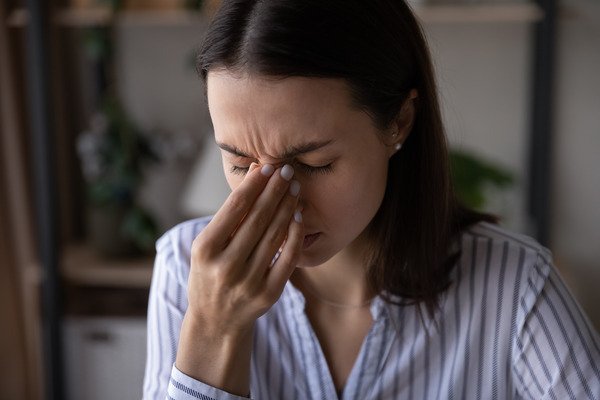How is gas related to anxiety? What can we do to deal with symptoms such as flatulence and belching due to anxiety? Discover how to identify and alleviate them.

If you suffer from anxiety, you are likely to experience a wide variety of different symptoms. Some of the most common may be tension, nervousness, having racing and catastrophic thoughts, as well as having a fast heart rate. Among them, one of the signs of anxiety that is not commonly talked about is gas. But why does it appear and how do you know if it is due to this disorder?
Anxiety and gas: how are they related?
Anxiety not only causes gas and bloating problems in our body, but this symptom also leads to experiencing this disorder more. In fact, it often happens that if you suffer from gas due to anxiety, this becomes a vicious circle. Although there is no concrete way to identify the exact cause of how the nerves and gas due to anxiety there are some reactions of our body to this disorder that could explain it:
- Air swallowing: When we experience anxiety, it is not unusual for people to breathe more than normal. This happens because our body prepares to face a danger, which requires more resources and, therefore, we need more oxygen. Once all this air is inside our body, it can cause greater pressure, which can result in experiencing gas or belching due to anxiety
- Oxygen release: Hyperventilation occurs when there is too much oxygen in our blood. By having this effect, because we prepare to act in the face of danger (that is, what generates anxiety), our body wants to release it and the result can be gas in the stomach
- Digestion problems: Our digestive system is very sensitive to any change and especially to stress. Thus, when we have anxiety, this leads to an increase in perceived stress, which ends up affecting our digestion. When we suffer from stress due to anxiety, our body can react by preventing it from processing food efficiently, often doing so too slowly. This implies that more bacteria accumulate in our body and as a result we experience constant gas or continuous belching
Can gas cause anxiety?
In the same way that the Anxiety symptoms can cause gas, the opposite can also happen. The reason is that people prone to gas may experience anxiety due to all the social problems that this natural reaction of our body can create.

How to reduce gas due to anxiety?
To address this problem, especially if your Gas and nerves are related to anxiety and stress, you should know that when gas accumulates in a person’s body it is necessary to release it. This implies that the best solution is to get these gases out, either with flatulence or belching.
Even so, gases can be reduced by eating healthier meals. For example, dairy products often contribute to gas. In this way, an effective solution would be to consult a nutritionist to change your diet. Additionally, you should take into account the following:
- Use breathing techniques: The gas caused by anxiety and nerves, are usually caused mainly by hyperventilation and swallowing of air. Therefore, by reducing the pace of our breathing through different strategies we can alleviate these symptoms.
- Eat and drink slowly: If you want to avoid any of the symptoms of gas, taking more time to chew and swallow food during meals may work for you. On the other hand, it is also advisable to eat at those times when you feel less stressed and try to enjoy the food.
- Stop smoking: If you smoke, it is normal to experience anxiety gas This is because when we inhale smoke, we are also swallowing air that we do not need.
- Don’t eat gum or candy: Another recommendation that can help you face the gas or belching due to anxiety, is to avoid both gum and candy. As with tobacco, those who chew these foods are usually more likely to swallow more air.
- Avoid soda and beer: Drinks with a lot of sugar or beer often release carbon dioxide gas, which can increase the chances of suffering from both gas and bloating.
- Go to therapy: If your problems gas before the nerves continue despite following these recommendations, it is possible that your anxiety is affecting you more than you were aware of. Therefore, if you suffer from these and other symptoms of anxiety, it is recommended that you go to a professional psychologist to detect what the cause is and how to deal with it.
Learning why we feel that way about certain events will help you prevent and improve problems related to gas from stress and anxiety Don’t let these symptoms end up limiting your daily life.








